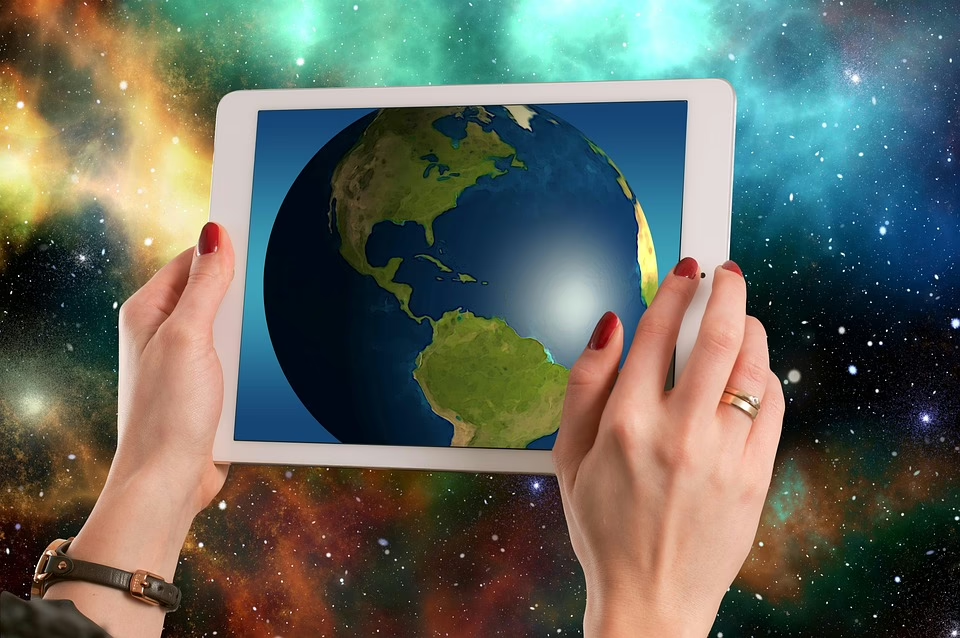The Essence of Technology: Beyond Gadgets and Gizmos
In today’s fast-paced world, technology permeates our lives more than ever. We often associate technology with the latest gadgets—smartphones, laptops, and wearables. However, the essence of technology transcends these material devices. It is deeply embedded in how we interact with our environment, each other, and the very fabric of society. This article explores the multifaceted nature of technology, delving into its definition, impacts on human society, ethical considerations, and its connection to the future.
1. Defining Technology
To understand technology’s essence, we must first define what it is. Traditionally, technology refers to the application of scientific knowledge to solve problems or complete tasks. It encompasses a wide range of tools, systems, and methods that enhance human capability and experience. However, a more nuanced perspective situates technology as an interplay between society, culture, and knowledge.
1.1 Technological Evolution
From the invention of the wheel to the emergence of artificial intelligence (AI), technology has continually evolved. Each leap represents a shift in human capability, influencing how societies develop. The Industrial Revolution exemplifies such a shift, signifying a departure from agrarian economies to industrial powerhouses.
1.2 Technology vs. Tools
While gadgets are tangible outcomes of technological advancement, technology itself is not limited to physical tools. Instead, it includes systems, methodologies, theories, and social constructs. For instance, education utilizes technology in ways that extend beyond textbooks to encompass online learning platforms, interactive simulations, and collaborative software.
2. The Role of Technology in Society
2.1 Enhancing Communication
One of the most profound changes technology has ushered in is the way we communicate. Social media platforms, messaging apps, and video conferencing tools have redefined our interactions, creating a global village where geographical boundaries quickly dissolve.
2.1.1 Social Media Impact
While social media connects us instantaneously, it also raises questions about the quality of those connections. Are our relationships shallow, or do they foster meaningful interactions? Platforms like Facebook and Twitter can amplify voices, but they can also contribute to echo chambers and misinformation.
2.2 Education Transformation
Technology has revolutionized education, making knowledge more accessible than ever before. Online courses, e-books, and virtual classrooms have democratized learning, empowering individuals with resources once confined to traditional settings.
2.2.1 Lifelong Learning
The advent of technology has shifted the focus from rote learning to a more dynamic, lifelong learning approach. The ability to acquire skills through MOOCs (Massive Open Online Courses) allows individuals to adapt to rapidly changing job markets and societal needs.
2.3 Economic Development
Technology plays a crucial role in economic growth, fostering innovation, productivity, and job creation. Emerging technologies such as AI and blockchain are not only creating new industries but also redefining existing ones.
2.3.1 Automation
While automation enhances efficiency, it poses challenges as well. The debate around job displacement is rife—will robots render human labor obsolete, or will they augment human capabilities in meaningful ways?
3. The Ethical Dimensions of Technology
As technology rapidly advances, ethical considerations become increasingly pertinent. Who controls the technology? Who benefits from it? These questions probe the intersection of ethics and technology.
3.1 Privacy Concerns
In an age where data is the new oil, concerns over privacy ethics are paramount. Technologies such as surveillance cameras, data mining, and facial recognition raise questions about civil liberties.
3.1.1 Data Ownership
Ownership of personal data is murky territory. As individuals navigate a landscape dominated by algorithms, understanding data rights becomes essential. Who owns the data we produce, and how is it used?
3.2 Algorithmic Bias
Algorithms influence crucial decisions, often unintentionally perpetuating biases based on race, gender, or socioeconomic status. Addressing algorithmic transparency is critical to ensure fair outcomes.
3.3 Digital Divide
The swift advancement of technology has also spotlighted the disparity in access to these advancements. The digital divide—where some have access to technology and others do not—represents a significant challenge. Bridging this gap is crucial for equitable development.
4. Technology’s Impact on Culture
Technology shapes our cultural landscapes, influencing everything from language to entertainment.
4.1 Language Evolution
The digital age has led to the emergence of new forms of communication, such as emojis, memes, and abbreviations. Language is evolving rapidly, reflecting changing social norms and cultural dynamics.
4.2 Art and Creativity
Artists and creators leverage technology to express themselves in innovative ways. Digital art, virtual reality experiences, and interactive storytelling create immersive environments that challenge traditional forms of art.
5. The Future of Technology
5.1 Emerging Technologies
Looking ahead, emerging technologies promise to further reshape our world. Artificial intelligence, quantum computing, and biotechnology hold immense potential, but they also require careful consideration of ethical and societal implications.
5.2 Sustainability
As climate change looms large, technology can provide solutions through renewable energy, smart cities, and sustainable agriculture practices. The challenge lies in integrating these technologies while fostering a culture of sustainability.
5.3 Humanity and Technology
The future may also see an increasingly blurred line between human and machine. The advent of brain-computer interfaces and enhanced human capabilities raises questions about identity and what it means to be human.
Conclusion
The essence of technology lies in its ability to shape our world profoundly. It extends beyond gadgets and gizmos, weaving into the fabric of society, culture, and ethics. As we advance into an uncertain future, the need to engage critically with technology remains paramount. We must recognize its potential while also considering its implications for well-being, societal equity, and ethical responsibility.
Footnotes
- [Author, A. (Year). Title of the Source. Publisher/Journal Name.]
- [Author, B. (Year). Title of the Source. Publisher/Journal Name.]
- [Author, C. (Year). Title of the Source. Publisher/Journal Name.]
- [Author, D. (Year). Title of the Source. Publisher/Journal Name.]
- [Author, E. (Year). Title of the Source. Publisher/Journal Name.]
- [Author, F. (Year). Title of the Source. Publisher/Journal Name.]
- [Author, G. (Year). Title of the Source. Publisher/Journal Name.]
- [Author, H. (Year). Title of the Source. Publisher/Journal Name.]
- [Author, I. (Year). Title of the Source. Publisher/Journal Name.]
- [Author, J. (Year). Title of the Source. Publisher/Journal Name.]
This article serves to explore technology’s role in society beyond the superficial gadgets we often associate it with. Each section invites deeper consideration of our relationship with technology and the implications of its continuing evolution.


























Add Comment